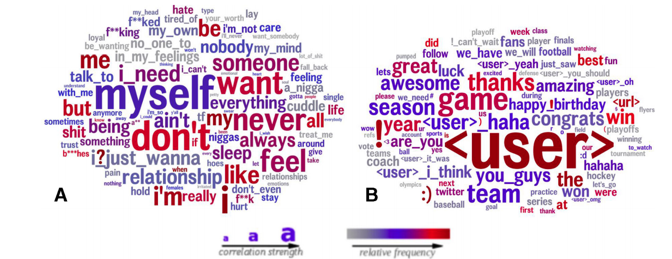The Atlantic Profiles Penn Research on Twitter and Mental Health

A long-standing collaboration between Penn psychologists, public health researchers and engineers is investigating how much social media platforms like Twitter are inadvertently offering a window into their users’ emotional lives.
The group’s most recent study, published in the journal BMJ Open, attempts to unpack differences in users’ language that might accompany loneliness. Using machine learning and natural-language processing, the researchers analyzed 400 million public tweets, comparing users who had used instances of words like “lonely” and “alone” to controls.
While the research can’t predict loneliness from a user’s language alone, it hints at relevant trends, like an increased use of swear words and terms related to feelings in general.
Lyle Ungar, a professor in the Department of Computer and Information Science with appointments in the School of Arts and Sciences, the Wharton School and the Perelman School of Medicine, spoke with Olga Khazan of The Atlantic about how this approach to mental health research can glean insights about how people feel that they might have a hard time consciously articulating.
In some cases, researchers can unearth fine-grained differences within amorphous emotions. Take, for instance, empathy. There’s long been an idea in psychology that there are two types of empathy: “Beneficial” empathy, or compassion, involves sympathizing with someone and trying to help that person. Meanwhile, “depleting” empathy entails feeling someone’s actual pain — and suffering yourself in the process. For a paper that is still undergoing peer review, another group of researchers at the University of Pennsylvania analyzed social-media language to determine how these two types of empathy are expressed. They found that people who demonstrate compassion tend to say things like “blessed,” “wonderful,” “prayers,” or “family.” Those who express depleting empathy use words like “me,” “feel,” “myself,” and “anymore.”
This might seem like a minor distinction, but according to Lyle Ungar, one of the study’s authors, finding the difference between the two can help people in jobs that involve caring for others, such as doctors, understand when their empathy might be counter-productive. Depleting empathy can lead to burnout. “I can really care about you and not suffer with you,” Ungar says. “I can worry that there’s poverty in Africa and donate money to charity without feeling what it’s like to have malaria.”
Ungar has previously collaborated with the recent study’s lead author, Sharath Chandra Guntuku, on similar studies about ADHD and anxiety.
Continue reading Kazan’s article at The Atlantic.
